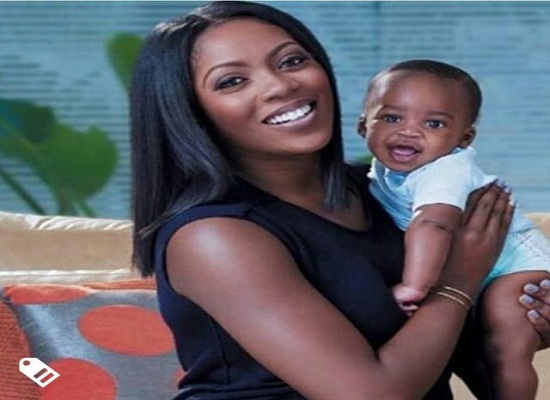Having the puberty talk can be nerve-wracking at times for both parents and children. Kids can become fearful of puberty and changes based on what they hear or see.
However, you can help to calm them and dispel the myths. So, be ready with accurate information and be available to support your children and answer their questions.
Here’s everything you need to do once your child starts growing pubic hair, breasts, etc.
1. Plan When To Have The Talk
Boys and girls hit puberty at different times.
You may want to tell your child about puberty as you notice their bodily changes, Better still, start earlier in order to prepare them.
It’s recommended that by age eight, kids know about puberty and the associated physical and emotional changes like growing pubic hair and breast.
While you may choose to have the grand conversation about puberty with your kids, keep conversations about development and coming into adulthood ongoing.
Girls experience puberty around ages 8-10. If you notice an initial growth spurt, this can indicate the onset of puberty which means that it’s time to talk.
Boys hit puberty later than girls, usually around age ten or twelve.
2. Open A Conversation
Pick a time to talk to your child, when neither of you are rushed or distracted.
Share some facts and allow your child to share their thoughts and concerns.
You may wish to start by asking your child what they’ve heard or been told by others about puberty. Once you know, address what is right or wrong.
If your child is nervous or anxious, keep your conversation concise and focus on building trust and openness for future conversations.
You can say things like: “You said that your friend told you a girl cannot become pregnant before she’s married?
Well, that’s incorrect. A girl can become pregnant any time after her first menstrual cycle, even though she’s still really young.
It’s important that you let them hear it from you. It’s on you to open a discussion, so don’t wait for your child/ren to come to you with questions.
If you’re waiting for your child to come to you, you may end up waiting forever.
In fact, if you don’t address it yourself, you may be unintentionally telling them that it’s not okay to talk about or that all what they’ve been hearing is correct.
This can hinder communications between you and your child and drive a wedge between you. So, be the adult and start a conversation with them about it.
Even though kids may hear information about sex and puberty from outside sources such as older siblings, friends, or the internet, it’s still important to have a talk with them yourself.
Give them reliable information that is valid and true, based on research and your personal experience.
It’s your duty to ensure that they get good information about the changes – growing pubic hair and breast ahead.
3. Stay Composed
Talking about puberty is not exactly viewed as a fun activity by either parents or children.
It’s totally okay if you’re nervous or anxious to talk about puberty with your kids.
Get informed.
Gaining knowledge can help you speak with confidence and clarity and without getting too embarrassed. Stick with the facts if you’re anxious.
Try not to laugh or get embarrassed in front of your child; you want to normalize puberty without adding shame or embarrassment to it.
Avoid pacing, clenching, or holding tension in your body.
Try to stay breathing and keep your body relaxed and softened.
4. Make The Discussion Fun
You may wish to plan an event around your discussion to make it more relaxing for both you and your child.
You can decide to take them out to lunch or dinner, pack for a picnic, or spend a day at the museum.
Spending quality time together before or after the talk can help.
Have the discussion, keep it brief, and then get back to having fun.
You don’t need to have a long, drawn-out conversation on the first day. You can always revisit the conversation any other time.
5. Explain What Causes Puberty
Talk about hormones and the role they play in puberty.
Explain that the body needs to go through puberty in order to be sexually mature, and the changes help that process to occur.
Be sure to frame these changes in a positive way and make sure your child knows that it is nothing to be ashamed of or that they need to hide.
Tell them,
“Hormones are chemical messengers in the body that are responsible for the changes that both boys and girls go through. These chemicals kick start puberty and allow both boys and girls to mature into an adult body over time.
This way, your body will be prepared for making the decision of having kids of your own one day.”
Tell them that these changes are normal.
A lot of children fear that their bodies are no longer normal or are different from their friends’ bodies.
Tell your child that everyone develops at different times and in different ways.
Usually, kids going through puberty want to be normal and fit in with their friends.
Assure them that all of the changes they are going through are totally normal and they also won’t go on forever.
For example, your daughter may start developing breasts before her friends.
Assure her that it is normal to develop breasts and that all her female friends will develop them too.
Inform them: “You’ll notice that most of the kids in your class have or will start to change.
It can be confusing, but it’s totally normal for boys to grow taller and develop deeper voices.
Girls will grow breasts and start seeing their periods. Whenever it happens, remember that it’s normal.”
6. Bring Up Body Hair
Boys and girls alike develop body hair during puberty.
Tell your child that it’s normal to have hair in places it wasn’t before.
Tell him/her that such hair growth is normal.
In cultures such as ours, shaving body hair is socially acceptable and boys may start to shave their facial hair while girls may start to shave their underarm hair.
Have You Read: How to have the boyfriend talk with your teenage daughter
Tell them, “body hair is a normal part of puberty and you may start to notice it in your genital area and underarms.”
Sometimes body hair comes alongside body odour. Talk to your children about body odour and bring up options like body sprays and deodorants.
7. Be Available For Questions
Let your children know that you’re here for them and available to answer any questions or concerns that they have.
Your girl(s) may ask why they haven’t gotten their periods yet or why their breasts are different sizes.
Boys may ask about wet dreams or changes to their testicles or penis.
If you don’t have an answer for them, say, “that’s an important question, let me get back to you on that” and do some research to adequately address the question.
Give your child/ren the time and opportunity to ask questions.
Remind them that their questions are important and answer them as honestly as you can.
Do not laugh, or joke about their concerns.
This may belittle their concerns and make them feel foolish. It will not help you or them.
Find amazing resources on parenting here.




